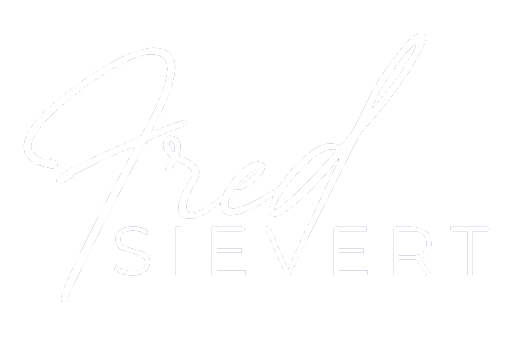Effective interviewing techniques are critical in identifying candidates who have the potential to become future leaders. Part 2 focuses on what other well-known executives and leading executive coaches focus on in identifying and assessing leadership potential.
However, even before scheduling an interview it is essential to garner from the resume of the candidate the extent to which the candidate’s skills, experiences, and gifts align with the requirements of the job. I believe that all of us are endowed with a distinct set of skills and gifts, whether spiritual, personal, or professional, and these must be effectively utilized in the workplace. To the extent this cannot be adequately assessed prior to the interview, you should explore this more thoroughly during the interview.

I have found that many individuals pursue job roles for the prestige, title, or compensation without paying adequate attention to whether they are truly suited for the position. This mismatch can result in significant frustration, depression, strained relationships, and even health problems. Studies show that nearly 80% of people who experience significant job-related stress report negative impacts on their personal lives, and about 25% of employees blame workplace dissatisfaction for health problems such as sleep disorders and high blood pressure. For the hiring company, the expense of training and then rehiring and retraining (if necessary) can be very costly.
A lack of proper alignment between the individual’s skills and gifts and the job requirements can lead to long-term dissatisfaction for both the employee and the organization. Instead, hiring for goodness of fit ensures that the person can thrive, be more engaged, and bring their best self to the job.

Here are some key tips I have found to be effective and were reinforced by my research. Not all of them will apply in every interview situation.
- Behavioral Interviewing
Lou Adler, author of The Essential Guide for Hiring & Getting Hired, emphasizes behavioral interviewing as a key method for assessing leadership potential. By asking candidates to describe how they’ve handled real-life situations in the past, interviewers can gain insights into their problem-solving, communication, and leadership styles. - Assess Emotional Intelligence (EQ)
Daniel Goleman, who popularized the concept of emotional intelligence, argues that EQ is a crucial indicator of leadership potential. Asking questions that evaluate a candidate’s empathy, self-awareness, and interpersonal skills can help identify those with strong leadership capabilities. - Ask Open-Ended Leadership Questions
Executive coach Marshall Goldsmith suggests asking open-ended questions that require candidates to share their leadership philosophy or experience. For example, “Describe a time when you led a team through a challenging situation. What did you learn?” This encourages deep reflection and provides a window into their leadership style. - Simulate Real-World Challenges
Jeffrey Pfeffer, a professor at Stanford Business School, recommends using role-playing or case studies during interviews. Candidates are asked to solve real-world problems that the company might face. This allows the interviewer to assess their ability to think strategically, adapt under pressure, and collaborate effectively. In my experience, posing hypothetical situations for the candidate to respond to is the most effective way to assess not only the person’s ability to think quickly but also their ability to clearly articulate their thoughts extemporaneously. - Gauge Future Orientation
Jack Welch, former CEO of GE, often stressed the importance of future orientation in leaders. Ask candidates how they envision the industry evolving and how they plan to stay ahead of trends. Leaders need to be forward-thinking and willing to take calculated risks. Depending on the background and skill set of the candidate, this question can either be posed as a question relating to the industry, or alternatively to their particular area of expertise. - Evaluate Adaptability
Satya Nadella, CEO of Microsoft, speaks often about the importance of a growth mindset. Interviewers can evaluate adaptability by asking candidates to describe a time when they had to pivot from an initial plan or when they overcame unexpected challenges. - Use Panel Interviews for Multiple Perspectives
Mary Barra, CEO of General Motors, advocates for diverse input during the hiring process. A panel interview with leaders from different departments can provide multiple perspectives on a candidate’s potential, and it can reduce biases from a single interviewer’s viewpoint. The choice of the members to include on a panel will depend on the level of the position for which the candidate is applying. - Look for Evidence of Continuous Learning
Indra Nooyi, former CEO of PepsiCo, often speaks about the need for continuous learning. Interviewers can ask candidates about the last book they read, the skills they’ve recently acquired, or the personal and professional development initiatives they’ve pursued. As stated in a prior blog, often individuals will need to take charge of their own development. Asking this question will enable you to assess the candidate’s level of initiative taken in the past to advance their own career. - Assess Decision-Making Abilities
Anne Mulcahy, former CEO of Xerox, highlights decision-making as a critical leadership trait. Ask candidates to describe a time when they had to make a tough decision with limited information and evaluate how they weighed risks and outcomes. Also, this is a great way the interviewer can pose a hypothetical situation that requires the candidate’s response to a potentially difficult decision. - Focus on Long-Term Aspirations
John Maxwell, a leadership expert, recommends asking candidates about their long-term career goals. Candidates who express a desire to lead, inspire, and make a broader impact within the company are often the ones with genuine leadership potential.


One Response
All are mandatory. All I would add is the need for 2nd and 3rd interviews in many cases. And meeting other higher up employees/ executives. And importance of flexibility